
Sendinblue Alternatives- 7 Best Platforms Reviewed
August 24, 2023
Email Marketing Services in Paris- Best Practices
August 28, 2023With email playing such a major role in business communication in the age of technology, having a reliable and strong SMTP server service is not an option—rather, it is a requirement. We’ll explore the value of a strong SMTP server service for your company in this post, along with the reasons it needs to be a key component of your communication plan.

Table of Contents
Pricing
| Trail Plan | Standard Plan | Premium Plan | Professional Plan |
| $50 | $145 | $185 | $225 |
| Sending Limit | Sending Limit | Sending Limit | Sending Limit |
| 1000 Emails/Hour | 1500 Emails/Hour | 3000 Emails/Hour | 5000 Emails/Hour |
Understanding Strong SMTP Service Provider
Email communication is based on the Simple Mail Transfer Protocol, or SMTP, service. They make it easier for emails to be sent and received from one server to another. Like postal carriers, SMTP service provider ensures your emails reach their intended recipients by navigating the intricate network of email infrastructure.
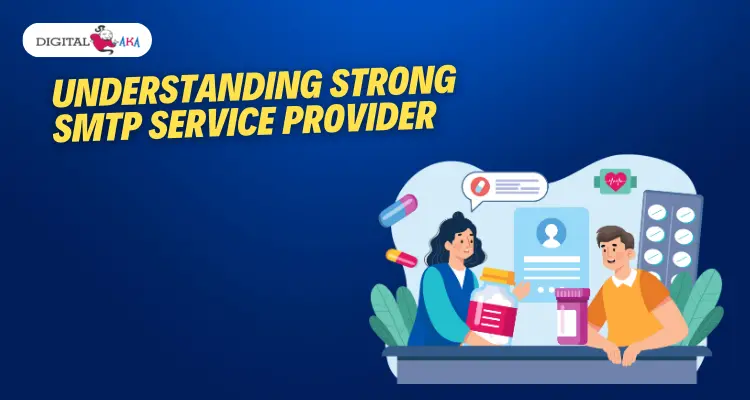
These servers are an important component of modern communication networks since they send messages in a timely and reliable way.
Importance of Reliable Email Communication
Reliable email communication is important for the success of modern businesses. It serves as the foundation for marketing outreach, consumer involvement, and cross-organizational collaboration. The reliability of the email system guarantees the timely delivery of papers, updates, and essential messages, promoting smooth communication and well-informed decision-making.
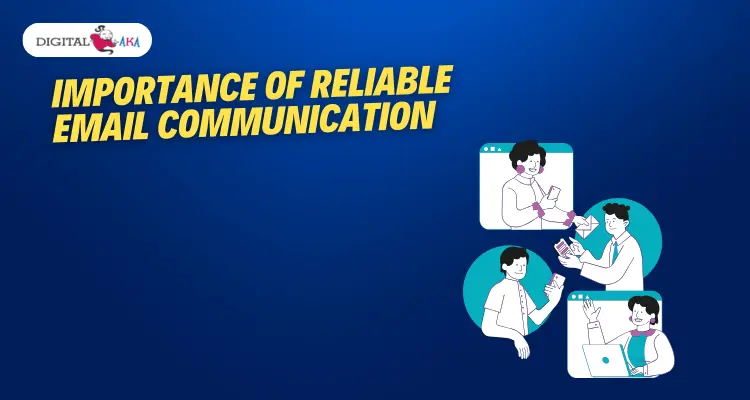
It also maintains a professional image because prompt correspondence shows dedication and proficiency. Building relationships, maintaining trust, and advancing organizational performance all depend on trustworthy email communication in today’s globalized world where virtual connections cut across national borders.
Strong SMTP server services to send transactional email
A strong and reliable SMTP server provider is essential for transactional email service to ensure the timely and reliable delivery of important communications. Transactional emails, such as order confirmations, account notifications, and password reset emails, need a strong SMTP infrastructure to guarantee their prompt delivery. For this, you’ll need strong encryption, high delivery rates, and authentication standards like DKIM and SPF.
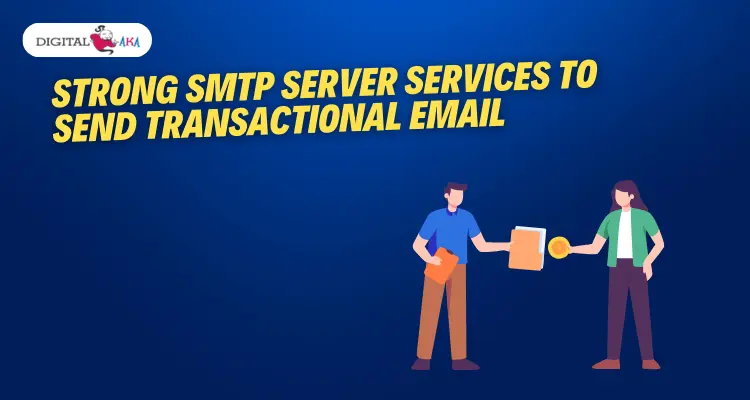
A strong SMTP server enhances the integrity of transactional communication and provides businesses with a reliable way to notify customers about important information. Maintaining trust, improving client satisfaction, and facilitating seamless interactions across a range of online transactions all depend on it.
The Role of Strong SMTP Server Services
Strong SMTP server service are essential for successful and efficient email transmission. These services, which operate as virtual postmasters, oversee the complex process of forwarding messages from one server to another, maximizing deliverability and lowering the possibility that emails would be regarded as spam. They use IP reputation management techniques, use authentication mechanisms, and offer real-time email delivery analytics.
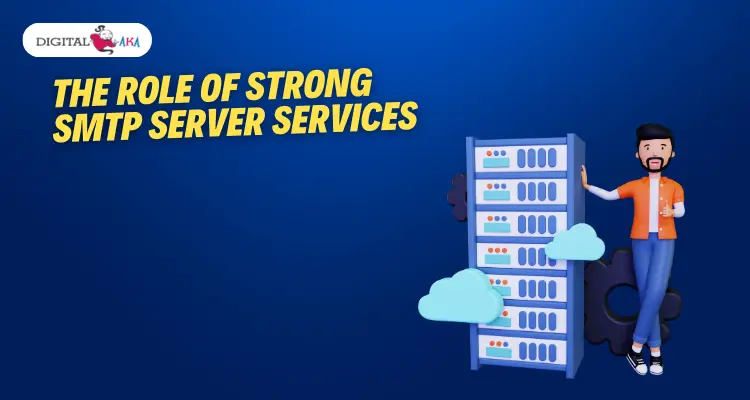
By streamlining this critical function, SMTP Server Provider enhances communication reliability, bolsters brand reputation, and enables personalized customer engagement. Businesses rely on these services to navigate the complexities of business email delivery, ensuring messages reach recipients’ inboxes effectively.
Key Features of a Strong SMTP Server
A Strong SMTP server boasts key features that ensure optimal email delivery. High deliverability rates guarantee messages reach recipients’ inboxes rather than spam folders. Authentication mechanisms, like SPF and DKIM, validate the sender’s identity, minimizing the risk of phishing and spoofing. IP reputation management maintains the server’s credibility, enhancing the chances of successful delivery. Encryption safeguards sensitive data during transmission, bolstering data security and compliance with regulations.
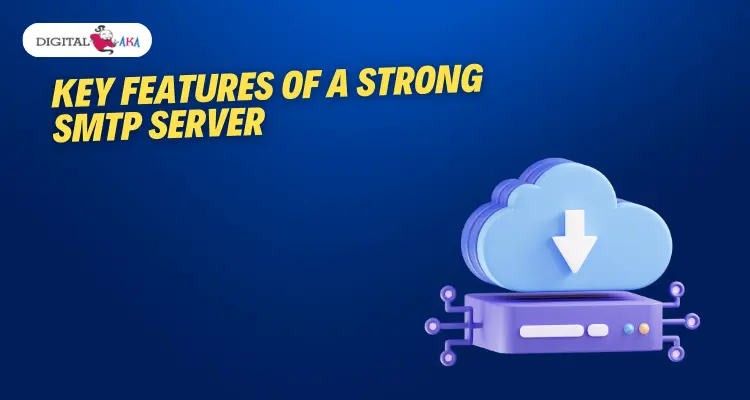
Real-time analytics offer insights into email performance, aiding in refining communication strategies. These features collectively empower businesses with reliable, secure, and efficient email communication, fostering stronger connections with recipients and elevating overall brand reputation.
Benefits for Businesses
Utilizing a strong SMTP server provider brings manifold benefits to businesses. Consistent email delivery builds recipient trust and enhances brand credibility. Enhanced client engagement through personalized communication leads to increased conversion rates. Facilitating effective internal communication enhances teamwork and production. Huge tracking and analytics improve marketing automation and email techniques, maximizing outreach initiatives.

Additionally, organizations gain the trust of their clients by protecting sensitive information through compliance with data security rules. In sum, a strong SMTP server streamlines communication fortifies customer relationships, amplifies marketing impact, and ensures operational excellence, making it an indispensable asset for businesses aiming for growth and success.
How does a Strong SMTP server improve email deliverability?
Improving email deliverability is largely dependent on having a strong SMTP server service. The ability of an email message to get to the intended recipient’s inbox without being flagged as spam or banned by email filters is known as email deliverability. Strong SMTP servers help improve email delivery in the following ways:
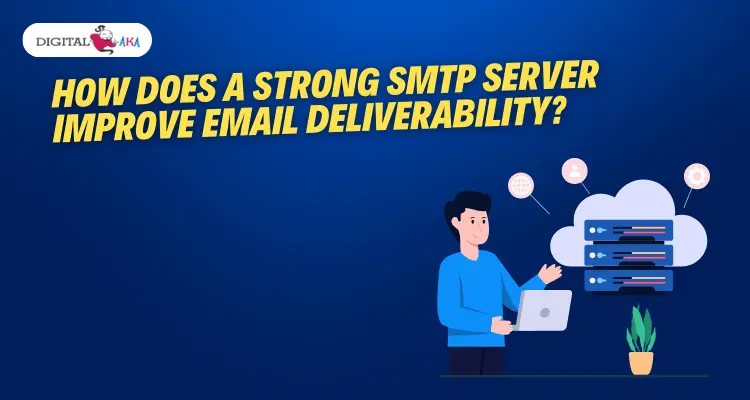
Reliability:
A strong SMTP server is reliable and operates with minimal downtime. This reliability ensures that your emails are consistently sent without interruptions, reducing the chances of messages being delayed or undelivered.
Authentication Protocols:
SMTP servers use authentication protocols like SPF (Sender Policy Framework), DKIM (DomainKeys Identified Mail), and DMARC (Domain-based Message Authentication, Reporting, and Conformance) to verify the legitimacy of the sender. These protocols help in preventing email spoofing and phishing attacks, enhancing the trustworthiness of your emails.
IP Reputation:
The IP address from which your emails are sent plays a significant role in email deliverability. Strong SMTP server providers typically have good IP reputations, which are determined by factors like the sender’s history, the quality of emails sent, and the level of engagement from recipients. A positive IP reputation improves the likelihood of your emails reaching the inbox.
Delivery Speed:
Efficient and quick email distribution is possible with a dedicated SMTP Server. Sending content slowly or with delays might cause spam filters to activate, which can negatively impact deliverability. This is why timely delivery is crucial.
Compliance with Regulations:
Strong SMTP servers adhere to email marketing regulations, such as the CAN-SPAM Act. Compliance with these regulations helps in maintaining a positive sender reputation and avoiding penalties or blacklisting.
Handling Bounces and Complaints:
A strong SMTP server is equipped to handle bounce messages and recipient complaints effectively. It processes bounce notifications, which occur when an email cannot be delivered and manages recipient complaints promptly. Proper handling of these issues helps maintain a good sender reputation.
Monitoring and Analytics:
Strong SMTP servers often come with monitoring tools and analytics that allow senders to track the performance of their email campaigns. This includes insights into open rates, click-through rates, and bounce rates, enabling senders to optimize their email strategies for better deliverability.
Feedback Loops:
Some strong SMTP server provider support feedback loops, which provide information about how recipients interact with your emails. This feedback allows senders to identify and address issues that may impact deliverability, such as high complaint rates.
Factors to Consider When Choosing an SMTP Server Service
Selecting the best SMTP server service is essential for both people and businesses seeking dependable email delivery. SMTP stands for Simple Mail Transfer Protocol. Making an informed decision requires careful consideration of a number of aspects. This is a full overview of the important things to think about:
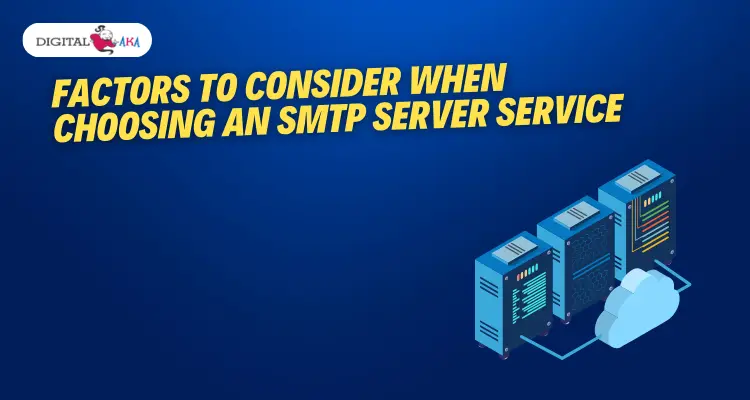
Deliverability:
Priority: The primary goal of selecting an SMTP server is to ensure optimal email deliverability. Evaluate the provider’s track record in delivering emails to recipients’ inboxes rather than being marked as spam.
Scalability:
Growth Accommodation: Choose a strong SMTP server provider that can scale with your business. Ensure that the provider can accommodate increasing email volumes as your communication needs expand over time.
Pricing:
Budget Alignment: While cost is an important factor, it’s essential to consider pricing about the value offered. Opt for a provider whose pricing structure aligns with your budget while providing the necessary features and services.
Customer Support:
Responsive Assistance: Robust customer support is vital. Look for a provider that offers responsive customer service to address any issues or concerns promptly. A support team that understands the urgency of email-related problems is important for maintaining smooth communication channels.
Authentication Protocols:
Credibility Enhancement: Authentication protocols such as SPF (Sender Policy Framework) and DKIM (DomainKeys Identified Mail) enhance the credibility of your emails. Ensure that the SMTP service implements these protocols to minimize the risk of your emails being treated as spam.
Encryption Capabilities:
Data Protection: Evaluate the encryption capabilities of the SMTP server to safeguard sensitive data transmitted through emails. Encryption adds an extra layer of security, especially when dealing with confidential information.
Integration Options:
Compatibility: Analyze the integration options provided by the SMTP service. Ensure that it seamlessly integrates with your existing tools and platforms, such as CRM systems or marketing automation tools, to streamline your communication processes.
Reputation Management:
Blacklisting Prevention: Reputation management is important to prevent blacklisting. Choose an SMTP server with measures in place to protect your sender’s reputation, ensuring that your emails are not blocked by spam filters.
Reporting and Analytics:
Performance Monitoring: Assess the reporting and analytics features offered by the SMTP service. A comprehensive monitoring system allows you to track the performance of your email campaigns, providing insights into open rates, click-through rates, and other key metrics.
Setting Up and Configuring Your SMTP Server
Setting up a strong SMTP server provider for your business involves several steps to ensure a reliable email delivery rate. Here’s a step-by-step guide:
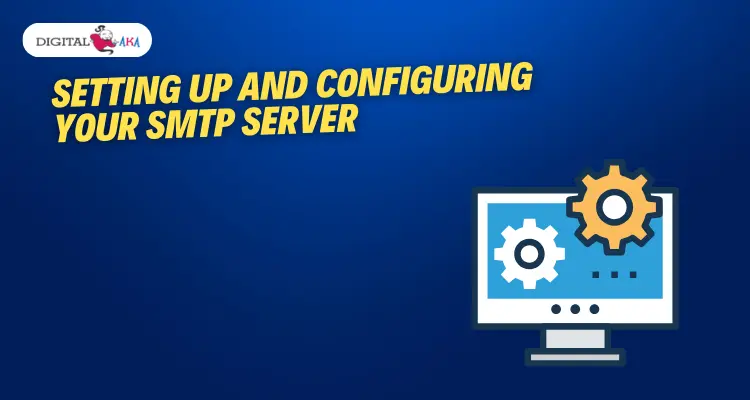
Choose SMTP Software:
Select robust SMTP server software that suits your business needs. Popular options include Microsoft Exchange, Postfix, and Sendmail. Alternatively, you can use third-party SMTP services that offer cloud-based solutions.
Get a Domain and Hosting:
Acquire a domain name for your business if you don’t already have one. Choose a reliable hosting provider to host your website and email services provider. Ensure the hosting plan supports the necessary server requirements for your chosen SMTP software.
Server Requirements:
Check the system requirements for your selected SMTP software. Ensure your server meets or exceeds these requirements in terms of hardware, operating system, and software dependencies.
Install SMTP Software:
Install the chosen SMTP software on your server. Follow the installation instructions provided by the software documentation. Configure the software settings according to your business requirements, such as domain name, server ports, and security options.
Configure DNS Settings:
Set up Domain Name System (DNS) records to point to your SMTP server. Configure MX records to direct email traffic to your server. Implement SPF and DKIM records to enhance email authentication and credibility.
Security Measures:
Implement security measures to protect your SMTP server. Enable SSL/TLS encryption for secure communication. Set up firewalls and intrusion detection systems to safeguard against potential threats. Regularly update and patch server software to address security vulnerabilities.
User Authentication:
Configure user authentication to ensure that only authorized users can send emails through your SMTP server. Implement strong password policies and consider two-factor authentication for added security.
Monitoring and Logging:
Set up monitoring and logging tools to keep track of server performance, email traffic, and potential issues. Regularly review logs to identify and address any anomalies or suspicious activities.
IP Reputation Management:
Monitor and manage the reputation of your server’s IP address. Avoid activities that may lead to blacklisting, such as sending spam. Implement best practices to maintain a positive sender reputation.
Backup and Recovery:
Implement a robust backup and recovery strategy to ensure the availability of your email data in case of server failures or data loss. Regularly backup critical configurations and email databases.
Testing:
Before deploying the SMTP server for production use, conduct thorough testing. Send test emails to various accounts and verify that they are delivered successfully. Test different scenarios to ensure the reliability and performance of your server.
Scale According to Needs:
As your business grows, monitor email traffic and scale your SMTP server infrastructure accordingly. Consider load balancing and redundancy to ensure high availability and prevent bottlenecks during peak times.
Provide Documentation:
Create documentation detailing the configuration and setup of your SMTP server. This documentation is valuable for troubleshooting, maintenance, and future reference.
Comparing SMTP Service Providers
When comparing SMTP mail server providers, consider key factors to ensure the right fit for your needs. Evaluate deliverability rates, as higher rates mean more emails reach inboxes. Features like authentication mechanisms (SPF, DKIM), IP reputation management, and encryption impact reliability. Pricing structures should match your budget and usage. Look for scalability to accommodate growth. Customer support quality matters for timely issue resolution.
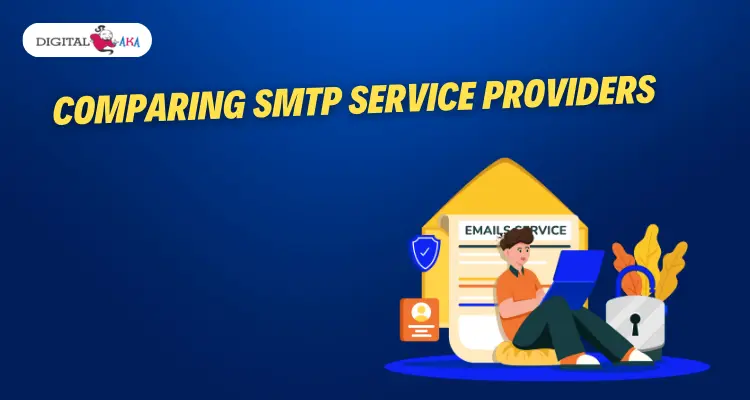
User interface and ease of integration play a role in user experience. Check for reporting and analytics capabilities to monitor performance. Finally, read reviews and seek recommendations to gauge reputation and user satisfaction. A thorough comparison ensures you select a strong SMTP server provider that aligns with your business goals.
Best Practices for Utilizing SMTP Servers
Make smart decisions in order to maximize the benefits of a reliable SMTP server service. If you want to send tailored emails, start by segmenting your list according to audience preferences. To grab readers’ attention and promote greater open rates, use attention-grabbing subject lines.
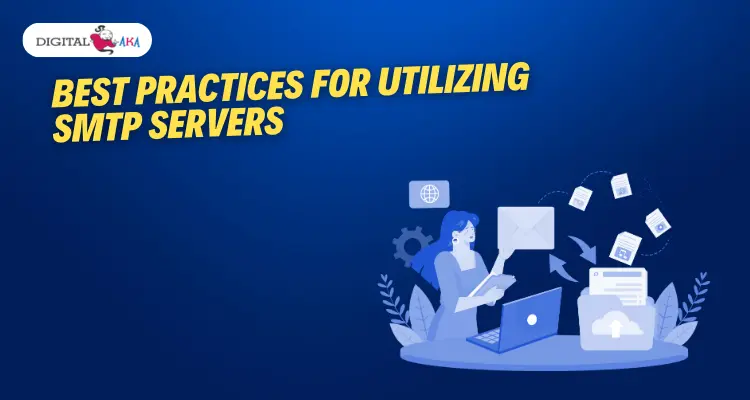
Keep an even more proactive stance by consistently keeping an eye on important delivery metrics like click-through, open, and bounce rates. This helps to make sure that your email campaigns are successful overall, boost engagement, and guarantee ongoing progress.
Monitoring and Maintaining SMTP Performance
Maintaining constant observation over your SMTP server is essential to avoiding problems and guaranteeing error-free email transmission. You may maintain the server’s effectiveness by routinely analyzing performance indicators, taking quick action to correct problems, and doing routine maintenance. Regular software and setting upgrades improve security and functionality even further.
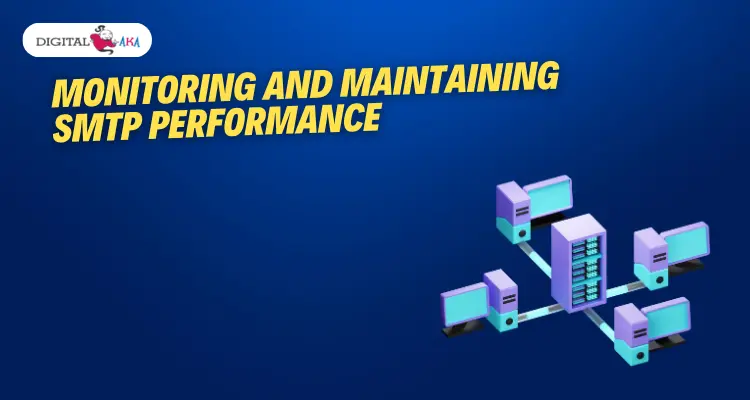
Constant monitoring helps ensure that your company’s email delivery system is dependable and consistent by preventing communication breakdowns and enabling prompt resolution of delivery issues.
Addressing Common SMTP Issues
Email rejections or delays may result from issues with SMTP servers. Blacklisting because of spam accusations, incorrectly configured settings, and inadequate server capacity are common problems. Regularly checking server logs for irregularities, quickly fixing misconfigurations, and putting security measures in place to avoid blacklisting are all necessary to ensure continuous email communication.
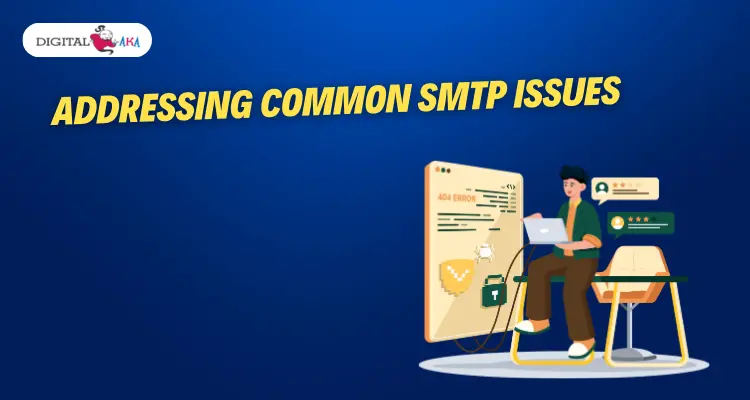
To get insights, frequently review email delivery data and make sure server resources are keeping up with your company’s expanding needs. An efficient and dependable SMTP server runs better when proactive troubleshooting and prompt resolution of these problems are implemented.
Data Security and Compliance
Choosing a strong SMTP server service provider becomes even more important in light of the changing data privacy laws. Choosing a service that prioritizes compliance and data protection is essential. Strict adherence to industry laws and strong encryption protocols are essential for protecting sensitive data. A dependable SMTP service that puts privacy first becomes essential for upholding confidence and guaranteeing legal compliance in the handling of sensitive data as companies traverse the complexities of data protection rules.
Conclusion
In conclusion, the importance of having a strong SMTP server service is enormous for modern enterprises. As the foundation of effective communication, it strengthens relationships with customers and increases the effectiveness of marketing campaigns. Businesses may effectively use email communication in today’s intensely competitive environment when they have a thorough understanding of the critical function, numerous advantages, and important best practices associated with one of the best SMTP server provider In India.
A business’s ability to provide smooth, dependable, and effective email contact depends on its choice of SMTP service provider, thus choosing one should be done carefully. This will help to ensure that companies remain connected and responsive in their digital connections.




